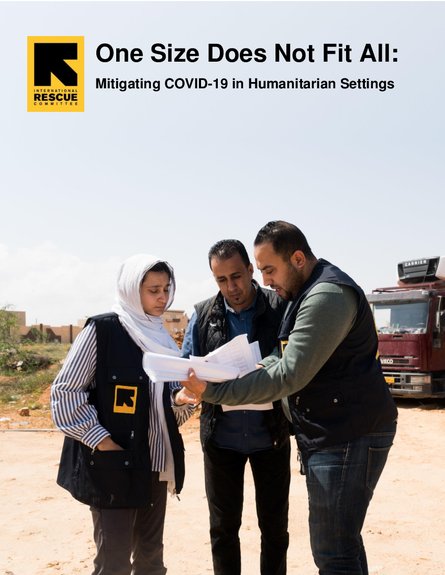
COVID-19 has already overwhelmed health systems in high-income countries. As it spreads to fragile and crisis- affected countries, it threatens even greater devastation. There is a small window left to mount a robust response while COVID-19 is still in the early stages of spreading to these settings. COVID-19 is a global threat requiring a global response, but the steps to contain it should be designed locally, particularly in the crisis settings where the International Rescue Committee (IRC) works, to avoid exacerbating humanitarian suffering.
While COVID-19 is a novel virus and much is still unknown, it is clear that its impact in these settings will be different than in the wealthier countries first hit by the pandemic. As such, the solutions to prepare and respond in these contexts must be bespoke. Lessons learned from other disease outbreaks and crises have shown the need to understand local dynamics, listen to affected populations and be willing to adjust the response. Frontline NGOs, like the IRC, can be trusted interlocutors in these communities to share vital information about the disease and implement measures that are sensitive to local contexts and pre-existing needs to mitigate the potentially devastating impacts on health, protection, livelihoods, and food security.
